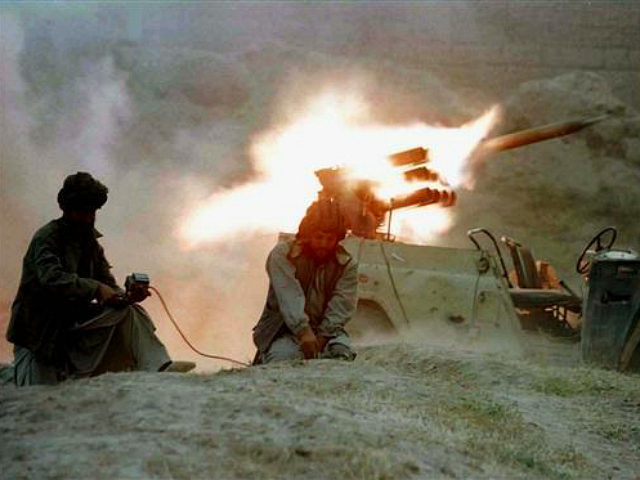Some officials from Pakistan and state sponsor of terrorism Iran have met with Taliban jihadists in the terrorist group’s stronghold of Helmand province in southern Afghanistan, reports TOLO News, citing provincial Gov. Hayatullah Hayat.
The governor accused Afghanistan’s neighbors Iran and Pakistan of backing the Taliban in its war against U.S.-backed Afghan National Defense and Security Forces (ANDSF), which includes police and military units, in restive Helmand province.
Gov. Hayat told Radio Free Europe-Radio Liberty (RFE-RL) that “Iranian interference [in Afghan affairs] has increased” recently, adding that the Pakistani military is also involved in “mobilizing insurgents” in Helmand, which borders Pakistan.
“There is some information which indicates that some Iranians and Pakistanis have visited the warfronts and met with the Taliban commanders in [Helmand’s] Garmsir district and provided necessary advice to the Taliban,” Hayat told reporters Sunday, noting that the Afghan government has ordered an investigation into the presence of foreigners in the conflict in Helmand.
The Helmand provincial council has also indicated that the Taliban jihadists are incapable of waging war in Helmand without the support of foreign governments.
“Afghan forces are conducting only air attacks, there is a need for ground operations in Helmand so that the area is secured,” declared Attaullah Afghan, a member of Helmand provincial council, according to TOLO.
Echoing the Afghan officials last month, Gen. John Nicholson, the top commander of the U.S.-led coalition in Afghanistan, told Pentagon reporters that the United States and Afghanistan are concerned about the “malign influence of external actors” such as “Pakistan, Russia, and Iran.”
The general acknowledged that all three countries — Russia, Iran, and Pakistan — have been accused of backing the Taliban.
Some Republican lawmakers in the United States have proposed listing Pakistan as a state sponsor of terrorism, along with Iran and Syria, noting that Islamabad has been supporting terrorist groups fighting against U.S.-backed forces in Afghanistan.
Gov. Hayat also revealed that the Taliban has used several Iranian rockets to attack the Helmand government compound.
“According to Hayat, several rockets were fired on the compound when the group launched a coordinated attack and some of the rockets did not explode after impacting the buildings,” reports Khaama Press (KP). “Hayat said the Iranian signs could be clearly read from the captured rockets.”
Earlier this month, the Associated Press (AP) noted, “Helmand is the main source of poppies for Afghanistan’s thriving opium trade, which is worth an estimated $4 billion a year, much of which funds the insurgency. Provincial officials estimate the Taliban controls 85 percent of the province, up from just 20 percent a year ago.”
After surviving more than 15 years of U.S.-led war, the resilient Taliban is believed to control more Afghan territory now, particularly in Helmand, since it was removed from power by the U.S. military in 2001.
With only about two weeks left in power, former President Barack Obama announced that the U.S. would be deploying about 300 Marines to Helmand province to train, advise and assist Afghan security forces struggling to push the group out of the top opium-producing province.
Helmand is one of the deadliest provinces for U.S. and their Afghan allies.
The U.S. and Afghanistan have suggested that Iran and Russia are lending support to the Taliban in its fight against the growing influence of its rival — the region’s Islamic State (ISIS/ISIL) branch known as the Khorasan Province (IS-KP/ISIL-K).
Khorasan is an ancient name for a region that covers parts of Afghanistan, Pakistan, Iran, and other neighboring countries.
U.S. Gen. Nicholson told reporters last month that Russia, Iran’s ally in backing Syrian dictator Bashar al-Assad, is backing the Taliban in Afghanistan.
Although both Russia and Iran have denied supporting the Taliban in the past, TOLO reports that the two countries have confirmed their contacts with the terrorist group.
Russia has proposed easing United Nations sanctions imposed on the Taliban.
Several news reports surfaced in mid-2016 suggesting that Shiite Iran and the Sunni Taliban jihadists in Afghanistan have been pulled closer by their mutual disdain towards ISIL-K.
Iran has been accused of forcing Afghan refugees residing within its borders to fight on behalf of Assad in Syria.

COMMENTS
Please let us know if you're having issues with commenting.